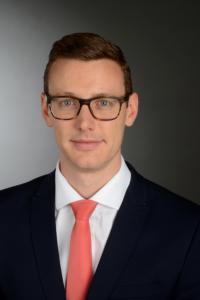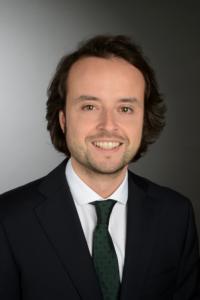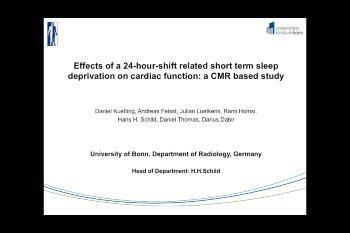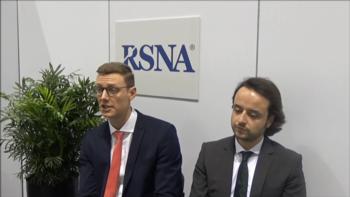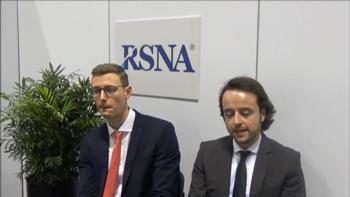Short-term Sleep Deprivation Affects Heart Function
Released: December 02, 2016
At A Glance
- After working a 24-hour shift with limited sleep, doctors showed increases in cardiac contractility, heart rate, blood pressure and stress hormones.
- This is the first study to use CMR strain analysis to study cardiac effects of sleep deprivation.
- The findings allow insight to the effects that workload and shift duration have on health.
- RSNA Media Relations
1-630-590-7762
media@rsna.org - Maureen Morley
1-630-590-7754
mmorley@rsna.org - Linda Brooks
1-630-590-7738
lbrooks@rsna.org
CHICAGO — Too little sleep takes a toll on your heart, according to a new study to be presented today at the annual meeting of the Radiological Society of North America (RSNA).
People who work in fire and emergency medical services, medical residencies and other high-stress jobs are often called upon to work 24-hour shifts with little opportunity for sleep. While it is known that extreme fatigue can affect many physical, cognitive and emotional processes, this is the first study to examine how working a 24-hour shift specifically affects cardiac function.
"For the first time, we have shown that short-term sleep deprivation in the context of 24-hour shifts can lead to a significant increase in cardiac contractility, blood pressure and heart rate," said study author Daniel Kuetting, M.D., from the Department of Diagnostic and Interventional Radiology at the University of Bonn in Bonn, Germany.
For the study, Dr. Kuetting and colleagues recruited 20 healthy radiologists, including 19 men and one woman, with a mean age of 31.6 years. Each of the study participants underwent cardiovascular magnetic resonance (CMR) imaging with strain analysis before and after a 24-hour shift with an average of three hours of sleep.
"Cardiac function in the context of sleep deprivation has not previously been investigated with CMR strain analysis, the most sensitive parameter of cardiac contractility," Dr. Kuetting said.
The researchers also collected blood and urine samples from the participants and measured blood pressure and heart rate.
Following short-term sleep deprivation, the participants showed significant increases in mean peak systolic strain (pre = -21.9; post = -23.4), systolic (112.8; 118.5) and diastolic (62.9; 69.2) blood pressure and heart rate (63.0; 68.9). In addition, the participants had significant increases in levels of thyroid stimulating hormone (TSH), thyroid hormones FT3 and FT4, and cortisol, a hormone released by the body in response to stress.
Although the researchers were able to perform follow-up examinations on half of the participants after regular sleep, Dr. Kuetting notes that further study in a larger cohort is needed to determine possible long-term effects of sleep loss.
"The study was designed to investigate real-life work-related sleep deprivation," Dr. Kuetting said. "While the participants were not permitted to consume caffeine or food and beverages containing theobromine, such as chocolate, nuts or tea, we did not take into account factors like individual stress level or environmental stimuli."
As people continue to work longer hours or work at more than one job to make ends meet, it is critical to investigate the detrimental effects of too much work and not enough sleep. Dr. Kuetting believes the results of this pilot study are transferable to other professions in which long periods of uninterrupted labor are common.
"These findings may help us better understand how workload and shift duration affect public health," he said.
Co-authors on the study are Andreas Feisst, M.D., Rami Homsi, M.D., Julian A. Luetkens, M.D., Daniel Thomas, M.D., Ph.D., Hans H. Schild, M.D., and Darius Dabir, M.D.
Note: Copies of RSNA 2016 news releases and electronic images will be available online at RSNA.org/press16 beginning Monday, Nov. 28.
RSNA is an association of more than 54,000 radiologists, radiation oncologists, medical physicists and related scientists, promoting excellence in patient care and health care delivery through education, research and technologic innovation. The Society is based in Oak Brook, Ill. (RSNA.org)
Editor's note: The data in these releases may differ from those in the published abstract and those actually presented at the meeting, as researchers continue to update their data right up until the meeting. To ensure you are using the most up-to-date information, please call the RSNA Newsroom at 1-312-791-6610.
For patient-friendly information on cardiac MRI, visit RadiologyInfo.org.
Images (.JPG and .TIF format)
and Video clips (.mp4 format)
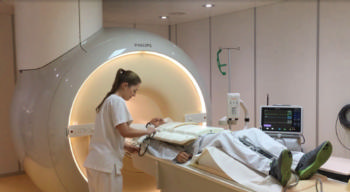
Figure 1. Study participant being prepared for cardiovascular MRI. Blood pressure and heart rate were monitored during the exam.
High-res (TIF) version
(Right-click and Save As)
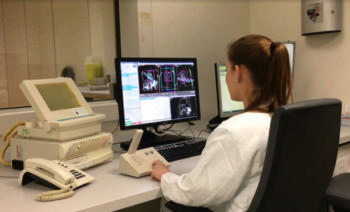
Figure 2. Researcher views images of the heart after cardiovascular MRI.
High-res (TIF) version
(Right-click and Save As)
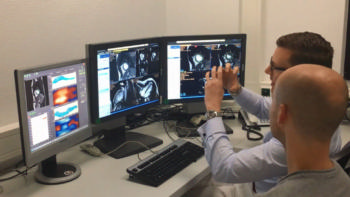
Figure 3. Researchers view images of the heart after cardiovascular MRI.
High-res (TIF) version
(Right-click and Save As)
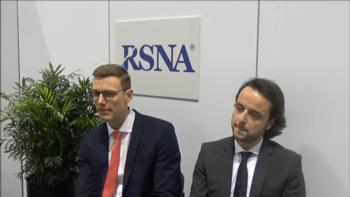
Video 2. Daniel Kuetting, M.D., discusses the reason for the research.
Download.mp4
(Right-click and Save As)
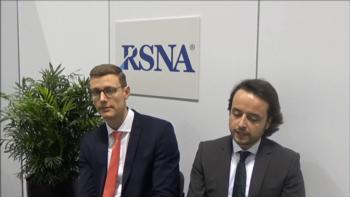
Video 4. Darius Dabir, M.D., explains the effects of sleep deprivation.
Download.mp4
(Right-click and Save As)
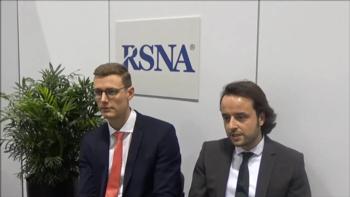
Video 6. Darius Dabir, M.D., addresses whether people should work 24-hour shifts.
Download.mp4
(Right-click and Save As)
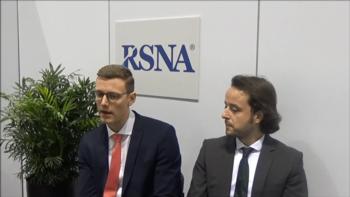
Video 7. 6. Daniel Kuetting, M.D., discusses implications of findings.
Download.mp4
(Right-click and Save As)
